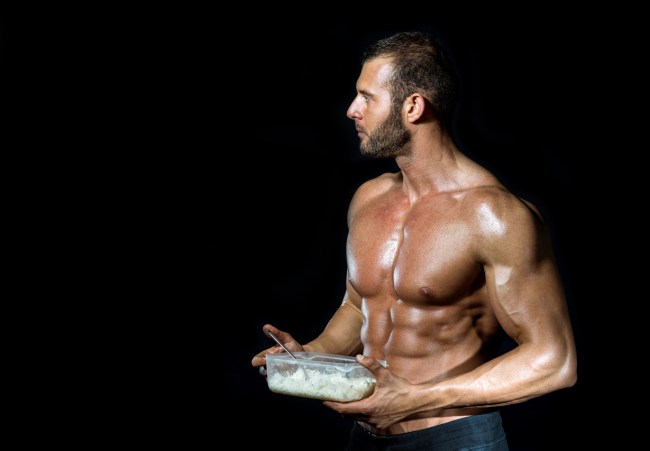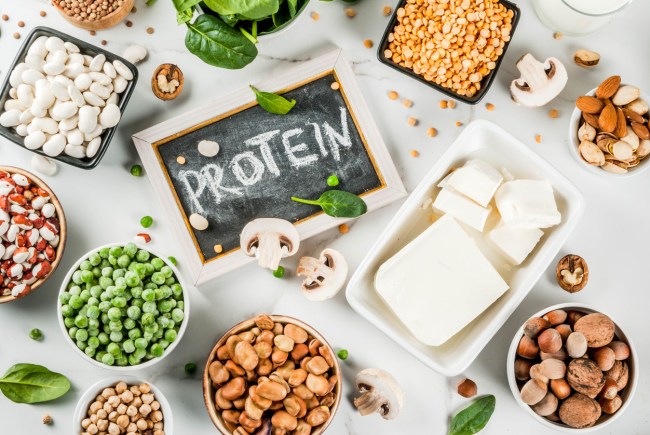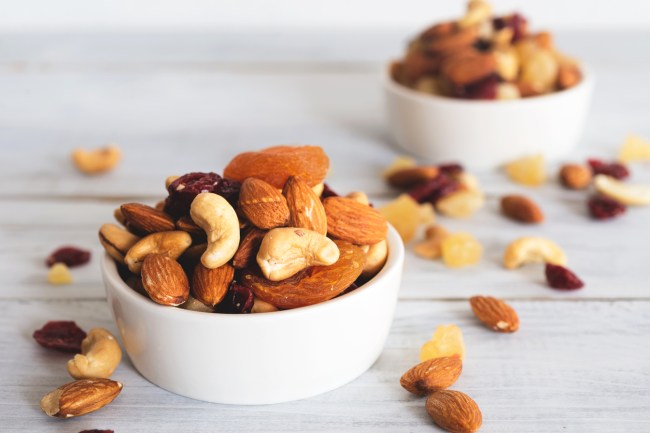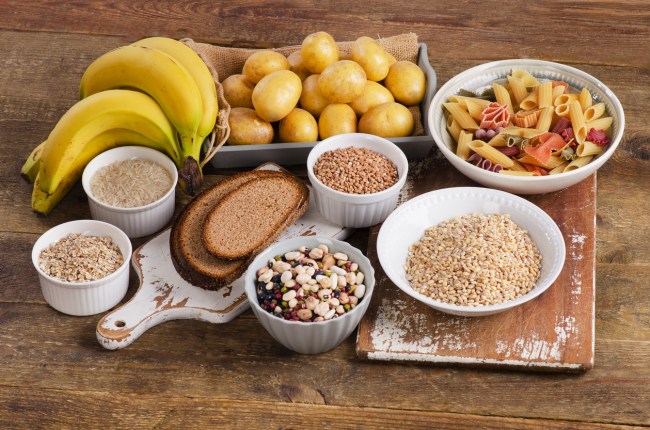
iStockphoto
If you’re at all into fitness, you’ve undoubtedly heard the term ‘macros’ thrown around. If you’re unfamiliar with macros, it’s short for macronutrients, i.e. protein, carbs, fat and alcohol.
Calories are actually made up of macronutrients. Each macro contains a certain number of calories per gram:
- 1 gram of protein = 4 calories
- 1 gram of carbs = 4 calories
- 1 gram of fat = 9 calories
- 1 gram of alcohol = 7 calories
For the purpose of this article, we are just going to focus on the three main macronutrients, protein, fat and carbs, and leave alcohol for another time.
Calories vs. Macros
Everyone knows what calories are. Chances are at some point in your life, you’ve looked at the nutritional label on a food product to see how many calories you were eating.
Calories provide the body with the energy it needs to survive. The number of calories you consume is directly proportional to the amount of weight you gain or lose. Counting calories is a good way to lose or gain weight. However if your goal is a lean, muscular, ripped physique, just counting calories may not be the most efficient way to go.
Enter macros. And, more specifically, counting macros.
Each macronutrient plays a different yet vital role within your body, no matter what Dr. Atkins or anyone trying to sell books tells you. Proper manipulation of these macros can help you reach your physique goals a lot faster than counting calories alone.
The rest of this article will focus on the roles each macronutrient plays in your body as well as a brief primer on how to count them in your diet*.
*Note: this is highly dependent on your goals, body fat percentage, etc, but I will provide some general recommendations.
Protein

iStockphoto
Protein plays a huge role in your diet. Protein will help preserve lean muscle tissue if you are in a caloric deficit, and help build muscle if you are trying to bulk up. It also helps control your appetite better and will keep you satisfied for longer periods of time.
In addition, protein has a high thermic effect, meaning it takes the body more calories to digest a gram of protein than any other macronutrient. This is part of the reason high protein diets are so effective for weight loss. Not only will it keep you full, but the more protein you eat, the more calories your body burns.
Unfortunately, the modern diet is lacking in adequate protein intake. Protein intake needs to be high enough to provide you will the benefits listed above, but not so high that it takes away from the benefits of other macronutrients. 0.8-1.2 grams per pound of lean body mass is a good range for most people.
Fat

iStockphoto
One of the biggest nutritional mistakes of the last century was the war on fat. Fat plays a vital role in the body and is essential for proper hormonal function, and does not lead to heart disease in otherwise normally healthy individuals.
And of particular importance to bros, fat plays a critical role in testosterone production. Testosterone is a huge player when it comes to fat loss, muscle gain and sex drive. If your fat consumption drops too low, testosterone production will suffer. Fat also assists with brain function and vitamin absorption.
Since fat is the most energy dense of the macronutrients at 9 calories per gram, it can be easy to over-consume. Keeping your fat intake to 0.3-0.7 grams per pound of lean mass will ensure that you are getting the benefits fat provides while not over-consuming.
Carbs

iStockphoto
If the war on fat was the biggest nutrition mistake of the last century, then the war on carbs may be the second. Technically yes, carbohydrates are the only macronutrient we can live without. But they also make up some of the more delicious foods out there and just make life tastier in general so why would you want to live without them.
More importantly though, carbohydrates provide the fuel for good workouts, especially when resistance training is involved. When consumed, carbs are stored in the muscles as glycogen and used as energy during a workout or after to help the body recover.
The body can still produce the essential pieces needed to fuel workouts without carbs, but not nearly as efficiently. Your overall energy levels during a workout are important because of the large amount of physical exertion needed to lift weights to maintain or increase muscle mass.
Everyone’s carbohydrate needs are going to be different. Athletes and more active individuals NEED more carbs than people who are sedentary and not as active. Figure out your protein and fat intake using the guidelines above and then fill in the rest of your calories with carbs.
Like anything in fitness, there are no absolutes when it comes to counting macros. Different people are going to have different needs. Just because someone posted on an internet forum that they got shredded eating 400g of protein and no carbs every day doesn’t mean you should do that too. Don’t be afraid to experiment and try different numbers based on the results you are seeing, and find what works for you.